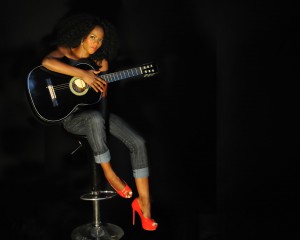Dekula Band at Klubi, August 3rd 2013
Dekula Band from Stockholm, Sweden will be replacing Blossom in the Fest Afrika concert at Klubi on Saturday, August 3rd. Dekula Band plays Soukous which is very popular in East and Central Africa. The band is multinational, with members from Tanzania, Democratic Republic of Congo and Angola, like the singer Lady Neema (Neema Mårsen).
The band leader Vumbi Dekula, the maestro of Congolese Rumba, is very active in the African music scene in Sweden. Currently, he and his band entertain fans on weekends in Little Nairobi (Lilla Wien Restaurant).



